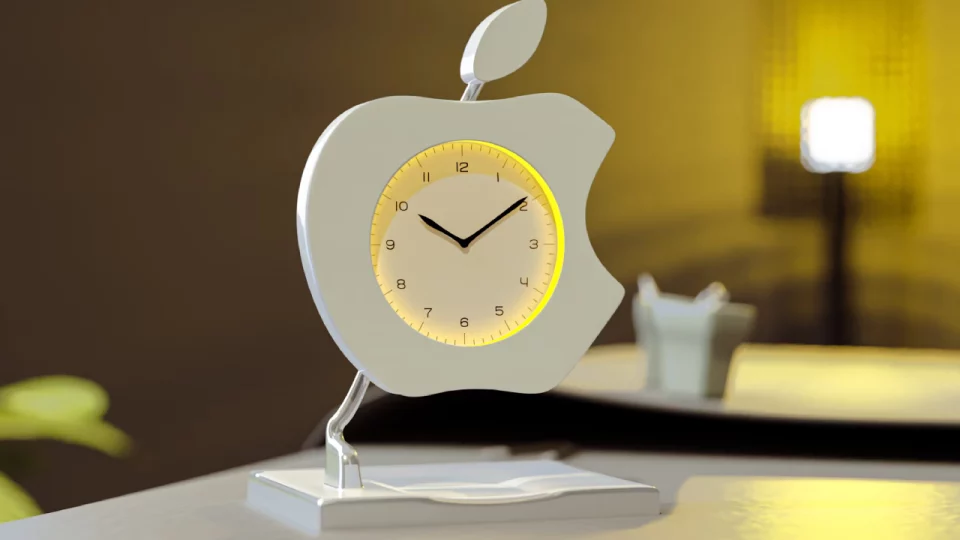In the age of smartphones, it’s easy to assume that these multifunctional devices are superior to their predecessors in every aspect of our daily routines—including waking us up. With built-in alarm features that include a wide variety of customizable sounds, snooze functions, and even smart integration, the smartphone alarm seems like the natural choice for most people today. After all, who wouldn’t want the convenience of having all their utilities in one place?
However, as technology becomes more entwined with every part of our lives, we are starting to see the drawbacks of our constant connection to digital devices. The blue glow of our phones has crept into our bedrooms, impacting our sleep, while our dependency on notifications has shaped our waking moments. As a result, more people are now reconsidering how they manage their relationship with technology, particularly in those first and last moments of the day. An old-school alarm clock, once considered a relic of the past, is being brought back as an alternative to regain control over personal habits and well-being.
The old-school alarm clock, with its analog simplicity and limited functionality, offers some surprising benefits that are more relevant today than ever. From better sleep quality to improved mental health, let’s explore why, despite all its digital charm, the smartphone alarm simply can’t compete with the benefits of a dedicated, non-digital alarm clock.
Table of Contents
The Power of Disconnection

The major advantage that old-school alarm clocks have over smartphone alarms is the disconnection they afford. We live in a world where our smartphones are our main tool for work, communication, entertainment, and information. For many, it’s the last thing they interact with before falling asleep and the first thing they reach for upon waking up.
Breaking the Cycle of Digital Dependency
The phone alarm encourages a never-ending cycle of digital engagement. When using a phone as an alarm, it’s almost impossible to avoid seeing notifications the moment you pick it up. Emails, messages, app notifications—all of these stimulate your brain, making it hard to disconnect and rest properly. The moment you interact with your phone, you risk becoming engrossed in social media or work-related activities, which are detrimental to mental relaxation.
On the contrary, an old-school alarm clock does one thing—it wakes you up. Its role is simple and singular. This lack of multifunctionality means there is no chance of getting distracted by notifications. This type of focused disconnection can be vital for developing healthier boundaries with our devices, something which numerous studies have linked to reduced stress and better mental health.
Sleeping Without the Temptation
Another point of consideration is that having your smartphone beside your bed creates a constant temptation to engage with it. The urge to scroll endlessly late at night is particularly detrimental to sleep quality. Blue light emitted from phone screens can interfere with melatonin production, the hormone responsible for sleep regulation. An old-school alarm clock keeps your phone away from your bed, reducing the temptation to use it and helping to create a bedroom environment that is conducive to restful sleep.
The Effect on Sleep Quality: Minimizing Sleep Disruption
A key reason to reconsider using an old-school alarm clock over a smartphone is the effect it has on sleep quality. Sleep is one of the most vital pillars of good health, and alarm choice plays an important role in shaping sleep patterns.
Reducing Blue Light Exposure
The screens of smartphones emit blue light, which has been shown to interfere with the body’s natural sleep-wake cycle, or circadian rhythm. When people use their phones late into the night—whether it’s checking social media or setting the alarm—blue light can inhibit the production of melatonin, the hormone that tells the body it’s time to sleep. This leads to poorer sleep quality and increased difficulty in falling asleep.
Old-school alarm clocks have no screens, no apps, and no notifications. The complete absence of light from screens helps to maintain the body’s natural circadian rhythm, resulting in better quality sleep and an easier time falling asleep at night.
A Consistent Wake-Up Tone
With old-school alarm clocks, the simplicity of the sound is predictable and consistent. Unlike smartphones, where people might change their alarm sound frequently or use a music playlist, traditional alarms offer fewer surprises. This consistency can make waking up easier over time, as the brain becomes accustomed to the particular tone.
In contrast, smartphone alarms allow for too much variability. Some individuals may set different sounds each day or choose songs that vary in emotional tone, leading to inconsistent waking experiences. This lack of predictability may prevent the body from establishing a reliable routine for waking up, which can have a negative impact on sleep quality over time.
Building a Sleep Sanctuary
Our bedrooms should be a sanctuary for rest, a place where we can unwind, relax, and feel detached from the stressors of everyday life. Bringing smartphones into the bedroom does quite the opposite, making it harder to differentiate between the spaces designated for work, play, and sleep.

The Allure of Simplicity
Old-school alarm clocks, with their singular function, contribute to the minimalist philosophy of keeping the bedroom a simple, peaceful space. They evoke an era before constant connectivity and information overload, providing a sort of psychological relief in a clutter-free environment.
With a phone, on the other hand, the temptation to engage with apps and media is always just one swipe away. By replacing your phone with a traditional alarm clock, you’re making a conscious choice to prioritize your well-being and create a designated space that’s solely for sleep and relaxation.
Establishing Healthy Boundaries
Another benefit of using an old-school alarm clock is that it helps establish healthier boundaries. Leaving the phone outside the bedroom creates a physical barrier between you and the distractions it offers. This boundary setting has far-reaching effects on mental health, as it can reduce anxiety and promote healthier sleep habits.
This practice can also lead to better time management. When you reach for your phone immediately upon waking up, you often end up spending unnecessary time scrolling before getting out of bed. An old-school alarm clock doesn’t tempt you with other functions; it simply signals that it’s time to start your day.
Avoiding the Snooze Trap
The smartphone alarm makes snoozing incredibly easy. Just a simple tap or swipe, and you get another precious few minutes of sleep, often leading to multiple snooze cycles. Unfortunately, this habit has a detrimental impact on the quality of sleep and the overall waking process.

Interrupting Sleep Cycles
When you press the snooze button, you’re essentially disrupting your natural sleep cycle. Those extra few minutes of fragmented sleep are not restorative and can lead to grogginess and decreased alertness—often called “sleep inertia.” The traditional alarm clock, in its straightforward and somewhat persistent manner, encourages you to wake up immediately rather than falling back into a non-restorative snooze.
The old-school alarm clock requires you to physically get up to turn it off. Whether it’s across the room or on your nightstand, the tactile action of turning off the alarm can encourage you to stay awake, whereas a smartphone allows you to disable the alarm while remaining in bed.
Creating a Wake-Up Routine
With an old-school alarm clock, people are more likely to establish an effective morning routine. The absence of a snooze feature forces you to start the day once the alarm goes off. The consistency of waking up at the same time every day helps regulate the body’s internal clock, leading to improved sleep quality and better overall energy levels during the day.
Less Stress, More Presence: Mental Health Benefits
The mental health benefits of ditching the smartphone alarm clock go beyond better sleep. The simplicity of an analog clock fosters a sense of presence and a break from constant digital stimuli, which can significantly reduce stress levels.
Starting the Day With Intention
When your alarm clock is your smartphone, it’s almost instinctual to immediately start scrolling through emails, news, or social media the moment you wake up. This habit bombards you with information, opinions, and stressors before you’ve even gotten out of bed, which can set a stressful tone for the rest of your day.
Old-school alarm clocks, in contrast, encourage you to start your day with a clear mind. Without the presence of a digital screen, you’re more likely to focus on the present moment—stretching, drinking a glass of water, or simply enjoying a few moments of silence. This intentional start to the day can have a positive impact on mood, productivity, and overall well-being.
Breaking the Habit of Constant Checking
Using a traditional alarm clock also helps reduce the tendency to check your phone frequently. People who use their phones as an alarm are more likely to check notifications and apps both before bed and right after waking up, contributing to heightened stress and information overload. By using an old-school alarm clock, you create a natural barrier that helps break the habit of constant checking, which has been linked to anxiety and a sense of being overwhelmed.
